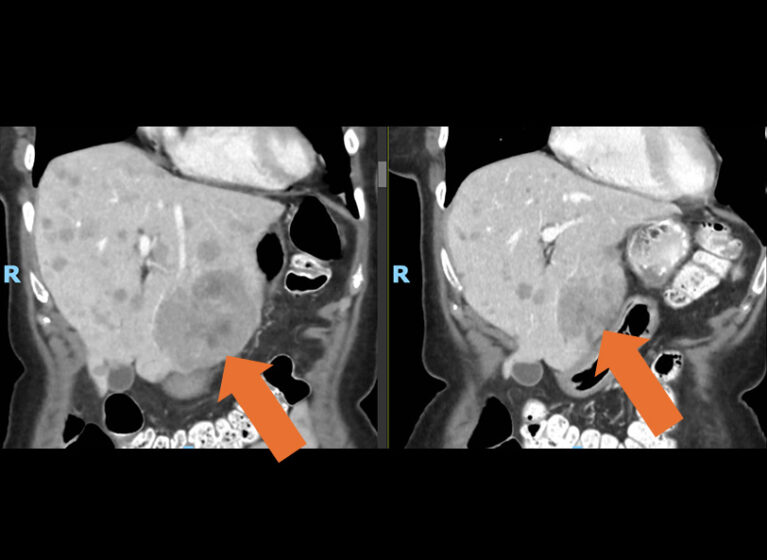
UVA Health was one of the first cancer centers in the mid-Atlantic to offer tarlatamab, a new life-extending treatment for stage 4 small cell lung cancer (SCLC). The center also recently joined a small group of U.S. centers to begin outpatient administration, significantly increasing patient access to this critical treatment.
Tarlatamab is a first-of-its-kind bispecific T-cell engager (BiTE). It causes T-cell–mediated destruction of small cell tumors by binding to DLL3 and CD3. In clinical trials, BiTE therapy significantly increased patient survival time to a median 14 months, which is significantly longer than other available treatments.
“The response is very impressive compared to overall prognosis,” says UVA Health thoracic oncologist and researcher Richard Hall Jr., MD. “Many patients in the initial study had actually received tarlatamab as a third line therapy.”
A Life-Changing Treatment for Stage 4 Small Cell Lung Cancer
Tarlatamab recently received its first FDA approval for administration as a second line therapy for stage 4 small cell lung cancer. Most patients with stage 4 SCLC progress less than 6 months after receiving first line treatment with chemo and immunotherapy.
The UVA Health team gained early experience administering BiTE therapy by taking part in the expanded access protocol of the phase 3 clinical trial. To date, the team has treated more than 20 patients with tarlatamab.
This experience is key, as BiTE therapy requires close monitoring for cytokine release syndrome (CRS), which is characterized by fever, hypotension, tachycardia, and breathing difficulty.
The team drew on the extensive expertise of UVA Health clinicians and researchers who were among the first to recognize CRS during the development of CAR T-cell therapy for blood cancers.
Developing an Outpatient Protocol to Expand Treatment Access
A challenge patients faced receiving the initial doses of tarlatamab was the need for repeated inpatient admissions to monitor for CRS and other potentially serious reactions. Recognizing this hurdle, the UVA Health team quickly began work to develop one of the first protocols for outpatient administration.
A multidisciplinary team of oncologists, pharmacists, and nurses created the protocol, which includes:
- Extended infusion center hours for daytime monitoring
- Thorough patient and caregiver education
- At-home kits for patients and caregivers to monitor vitals outside the hospital
“Outpatient access gives patients greater flexibility to live their life and receive treatment compared with inpatient access, though it is not right for everyone,” Hall explains. “Patients need good caregiver support and need to be healthy enough to receive outpatient therapy.”
In September, the team became one of the first in the U.S. to offer BiTE therapy in the outpatient setting.
“It took a team effort with engagement across physicians, pharmacy, nursing, and administration to create our outpatient standard operating procedure,” Hall shares. “We also believe in continuous improvement, and we have ongoing meetings to improve the SOP and our delivery of tarlatamab.”